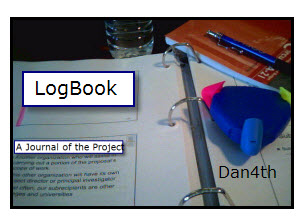Keep a Project Journal–A Log Book The first step in starting a science fair project is to create a science journal, which is a written record showing all your work from start to the finish. Take pictures during each step of the project. A science fair project is for learning more about science and you […]
Science Fair Project:Report Rubric
The following rubric is an example. The content of the rubric you use to evaluate your students depends on the rules of your science fair. Also, the content depends on the age of students being evaluate. How the report is prepared also depends on the age of the students being evaluated as well as the […]
Math and the Bible
The Author of the geometry book has a great chapter on conditional statements, which he calls “if-then statements.” This idea can be expanded to include every curriculum that I can think of, including the Bible. Just think of all the times that the Lord told the Israelite that: If they would do something, then God […]
Geometry: Angles
What is Geometry? Geometry is the mathematical study of figures and shapes. Let’s find out the difference between figures and shapes, define angles and of course, play and learn how angles form polygons–closed, straight sided figures. Figures vs. Shapes A geometric figure is the entire object, while a shape is the outer form of the […]
Science Fair Project:Bibliography
Don’t get loony over providing proper credit for research information found on the web. Following are example how to credit different materials from websites. But, to make extra sure, ask your instructor to approve the examples given. 1. Almanac Articles Article title in quotation marks. Website title. Copyright date and company name. Access date and […]
Yawning is Contageous
Just looking at the photo of the girl yawning makes one want to yawn. In fact, if you try not to think about yawning the desire to yawn just seems to be greater. I’ve not found any explanations for this response. Even before it is born, a baby yawns as early as the first trimester […]
Types of Variables
What are the Different Types of Experimental Variables? Variables are anything in an experiment that can change on its own or can be changed. Types of experimental variables are: independent variables, dependent variables, controlled variables. Independent Variable (IV) An independent variable is a variable that is purposely changed. The purpose of an experiment is […]
Science Fair Project: Report
Science Fair Project Report * Using your notes you can easily prepare a project report, which explains what you did. Check with your instructor for specific directions, or get approval for using the following report outline. Title Page *Your project’s name (it can be in the form of a question) Your name, school and grade. […]
Browning Apple: Experimental Conclusion
An experimental conclusion is a summary of the investigation. The photo of the girls raking leaves, is much like an experimental conclusion. Both processes involve collecting materials from different places and putting them in one place. Unlike the pile of leaves, which has no particular organization, an experimental conclusion is organized. The conclusion should state […]
Scientific Method: Conclusion
A conclusion is a summary of the experiment. For a cause-effect experiment, the conclusion should state the hypothesis and and tell whether the results of the experiment supported the hypothesis. If the results did not support your hypothesis, say so, and then add information about why this happened. For Example: If the cause-effect experiment has […]
- « Previous Page
- 1
- …
- 32
- 33
- 34
- 35
- 36
- …
- 96
- Next Page »








